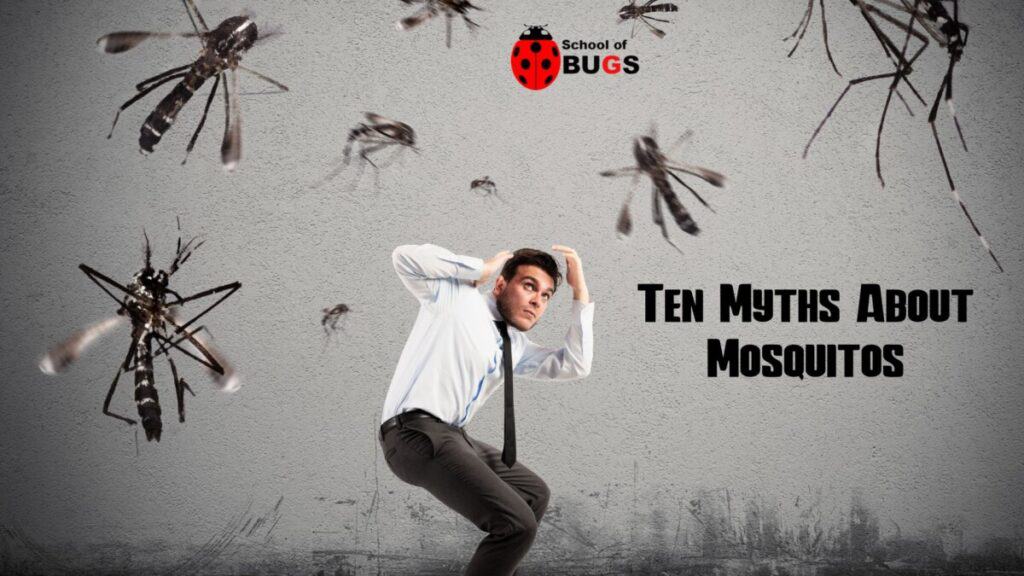
Anyone who entertains on a summer night knows how aggravating mosquitos can be. People use tiki lights, bug zappers, and citronella to keep them away and then still may find themselves slapping their arms or leg to kill the mosquito biting them.
Are what we’re told about mosquitos true? The honest answer is most are partially true while some things are completely false.
All mosquitos don’t bite and they don’t die after biting you unless you kill them with a hand slap. It’s all a part of the ten myths about mosquitos.
Read further to find out the truth about the 10 common things we believe about mosquitos. In this article you will understand:
- Only the female mosquito bites and there is a reason for it.
- One blood type attracts more mosquitos than other blood types.
- The best way to control mosquitos is not citronella.
- The number of insect diseases has risen in the United States.
- Mosquitos can bite at any time.
10 Myths About Mosquitos
People have common beliefs about the blood-sucking mosquito and most of those are either wrong or, at least, not completely true. Let’s take a look at the top 10 myths people have about mosquitos.
1. Any mosquito can bite you.
This is false. The only mosquitos to bite humans are females. The interesting fact is why they bite humans. They want the human blood’s nutrients for reproduction. Our blood helps the female mosquito produce eggs.
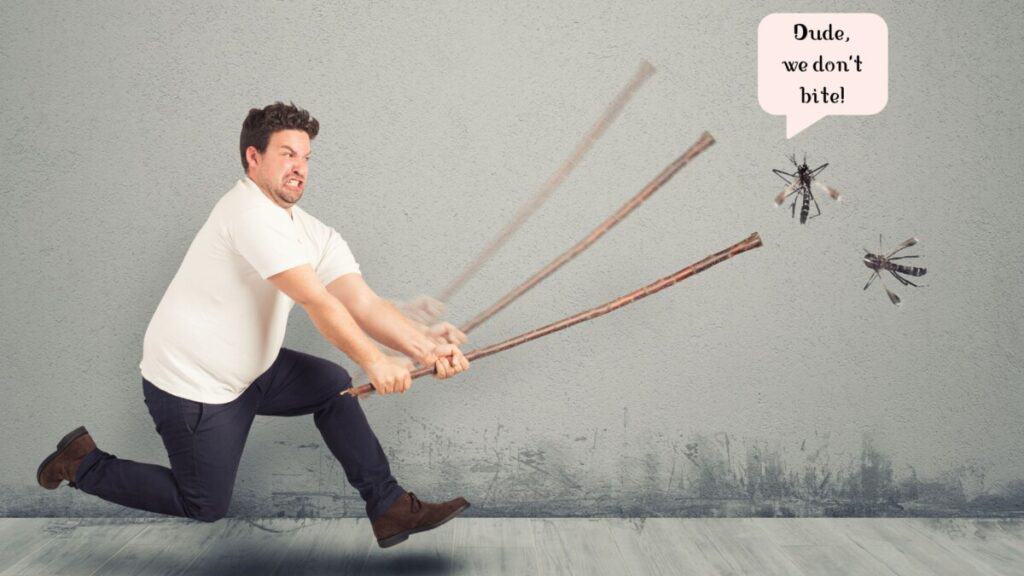
The truth is male mosquitos don’t bite at all. They eat plant substances to survive. The fact that the female mosquito needs human blood for reproduction brings us the to second most popular mosquito myth.
2. Biting humans result in a mosquito’s death.
This is only true if the human victim kills the mosquito. Logic shows that if a female is drawing blood for reproduction, she isn’t going to die.
The truth is the same mosquito bites multiple times. She lay eggs after the bite but needs more nutrition for more eggs. That results in more bites.
3. Mosquitos won’t breed in your yard if there’s no standing water.
This is mostly false. Standing water indeed encourages mosquito breeding. However, mosquitos only need a cap of water to lay eggs.
Getting bit means there is a breeding ground nearby, either in your yard or the neighbor’s yard.
4. Mosquitos are nighttime bugs.
Many people think that mosquitos bite at night because of their personal experience. Most people who played outside with friends until dark noticed more mosquitos at twilight. It was always the signal to go inside.
However, science suggests this is wrong. Mosquitos can bite anytime, even in the middle of the day when it’s hot. Some breeds are more prone to biting during daylight hours. The Asian Tiger mosquito is one of those.
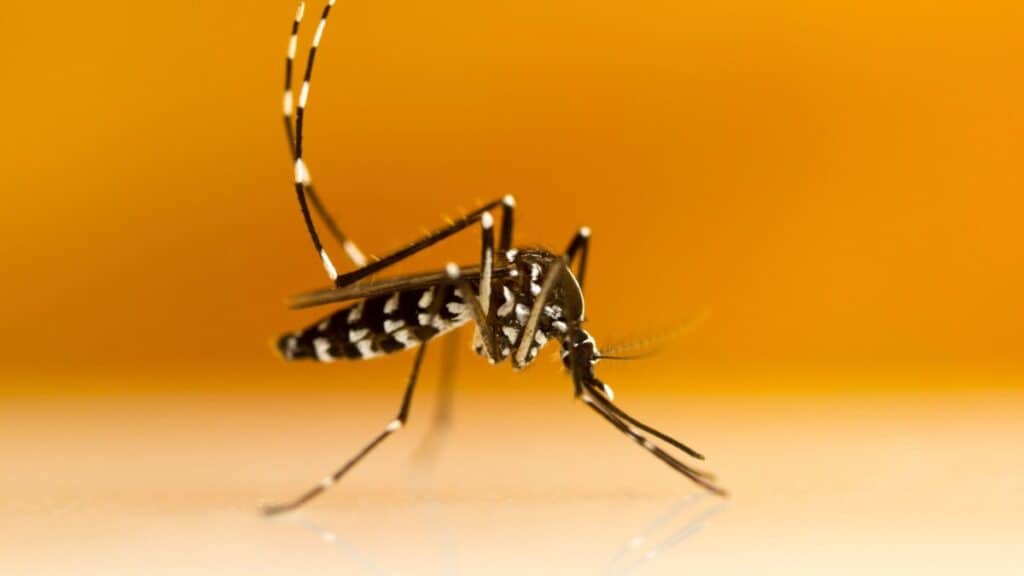
5. Mosquitos bite diabetics more than others.
This is a rumor that started because of the idea that sugar water attracts mosquitos. Mosquitos indeed love sugary things like fruit, juice, honey, and even sugar-water
However, it is false that mosquitos bite diabetics more than other humans. The confusion is over why mosquitos like sugar. They need sugar as fuel for their bodies so they seek it out. It’s not that they like the taste.
Mosquitos don’t “taste” blood, so they have no preference for a person with high blood sugar over someone who has normal blood sugar. They can’t sense or smell high blood sugar to know who has it and who doesn’t.
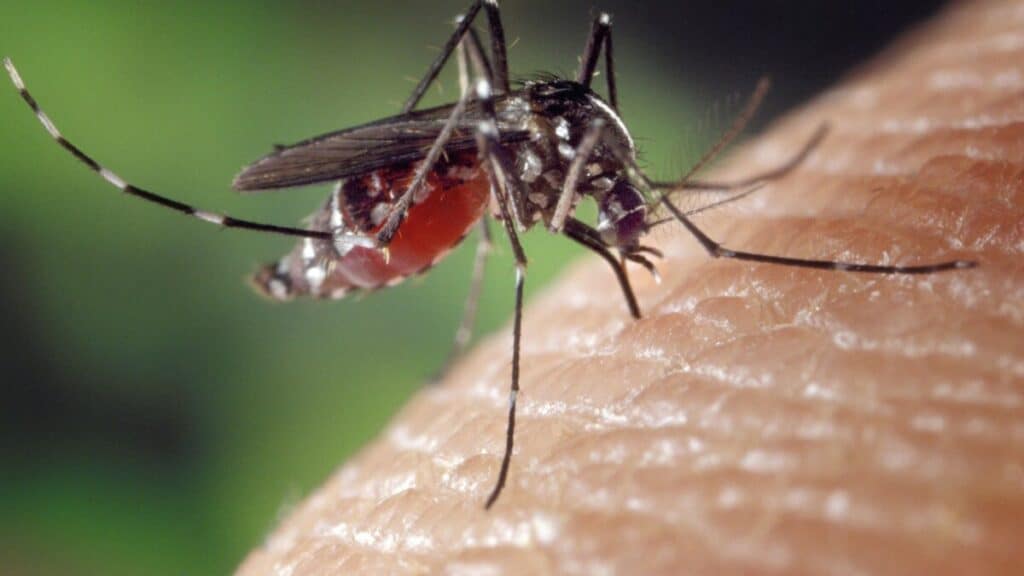
However, they are attracted to certain people more than others. These pests sense people’s body heat, carbon dioxide from breath, and especially the secretion of lactic acid from humans.
These are all things their little receptors can sense and direct them to the person that has what the female is looking for in nutrients.
Type O Blood Attracts Them
It is scientifically proven that those with Type O blood get bitten more than those with other blood types. Lactic acid secretion is what’s thought to be the difference between those with Type O blood, which mosquitos love, and Type A blood.
Scientists have noticed the pattern concerning those with type O blood and mosquito bites but haven’t found a reason for the pattern.
Drinking Beer Attracts Them
Do you get bitten more when drinking beer? It can make you more attractive but not to the female you are hoping to attract.
An interesting tidbit about mosquitos is that those who drink alcohol can make you more attractive to the female mosquito for biting.
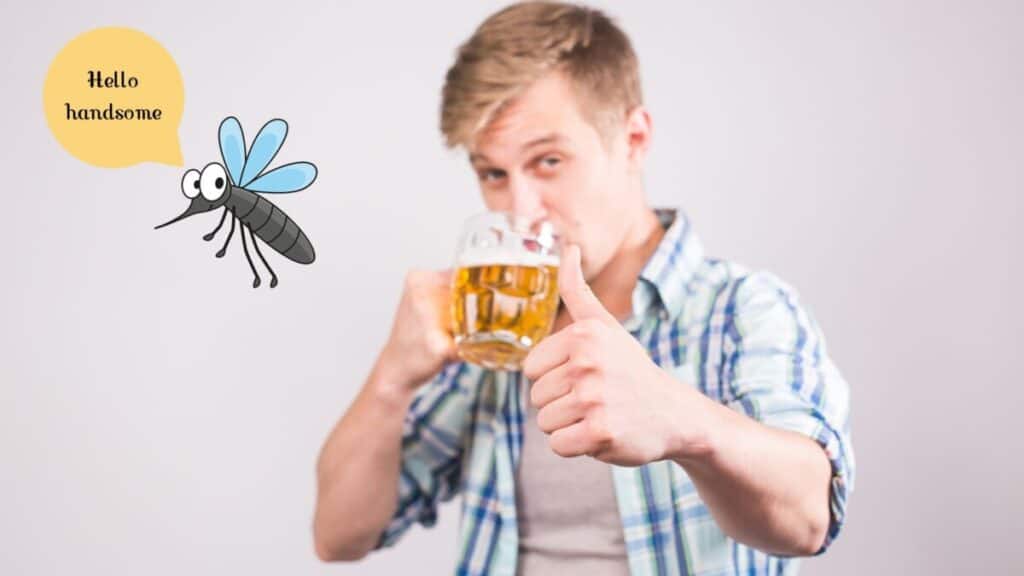
One study considered the effect drinking a few beers can have on mosquito bite risk and it showed that drinking only 12 ounces of beer increases one’s chances of being bitten.
Again, there isn’t enough research to know if this would apply to all alcohol and all people or just beer drank by certain people. Scientists state more studies must be done to gather more credible data.
Pregnant Women Are At Risk For Bites
Other studies show that pregnant women may also face an increased risk of being bitten by a mosquito. A 2000 study stated the risk was higher for pregnant women but it was a small sample so it’s not considered completely valid.
The working theory is that pregnant women emit more of the stuff mosquitos like, such as carbon dioxide.
Since mosquitos and other bug bites can carry many diseases, it’s best for pregnant women to avoid bug bites with safe, effective preventive methods as instructed by their doctor.
6. Fans and bug zappers kill mosquitos.
Many people think a fan blowing away from an outside area will blow away and kill mosquitos. That is false. However, fans do work to keep mosquitos from biting but there’s a whole different reason why it works.

Fans cover up human scent and heat. Mosquitos sense human heat and the carbon dioxide smell so they come to bite. A fan blows all of that around, dilutes it, and covers it so mosquitos are more confused.
Bug zappers don’t work well with mosquitos either, according to statistics. Mosquitos only make up a small percentage of bugs killed by a bug zapper.
While these things aren’t the most effective ways of keeping mosquitos out of your yard or patio, they do offer some help so they shouldn’t be completely ignored. Just don’t depend on them totally to protect you.
7. Citronella and garlic will keep mosquitos away.
This is partially true. They don’t actually repel mosquitos as many people believe. What both of these scents, and other similar home remedy solutions, do is mask the human scent. The insect receptors, which are the part of the mosquito that finds the scent, are confused so they don’t bite.
Like using fans, tiki torches, and bug zappers, there is not anything wrong with using citronella and garlic. They are somewhat effective in keeping a space clear of insects. However, you shouldn’t depend on them to protect you.
Use a Bug Spray
An over-the-county bug repellent is the one thing that can keep you from being a mosquito’s meal. These are the sprays you use on yourself.
Most bug experts state the best bug sprays are the ones that have diethyltoluamide (DEET) as a primary ingredient.

DEET protects people from a range of bugs. It also confuses mosquito receptors by covering your scent but is considered to be the most effective way to protect yourself against mosquitos.
Health concerns exist about DEET. Some are concerned about skin and nasal irritation from using products with DEET.
Experts state to pick sprays and repellents containing less than 50 percent of DEET. DEET is non-toxic when used properly and according to the directions listed on the label.
8. Lighter clothes will result in more mosquito bites.
This is false and, in reality, the opposite is true. Mosquitos look for colors that match the animals they usually bite. That means they are attracted to darker colors. Wearing light-colored, looser clothes will deter mosquitos.
Light colors don’t attract mosquitos and loose-fitting attire makes it harder for the female mosquitos to get to your skin.
9. Mosquitos are annoying but don’t cause any real problems.
The truth is that mosquitos, along with other blood-sucking insects, cause many illnesses. The Center for Disease Control and Prevention (CDC) issued a 2018 report stating that illnesses from bites from mosquitos, fleas, and ticks tripled in the U.S. over the past 13 years.
More than 640,000 cases of illness were reported from 2044 to 2016, according to the report.
10. Mosquitos only live in tropical places.
Mosquitos can be found globally, even in places like Siberia in the summer and even in the Arctic tundra. The only place they haven’t ever been found is in Antarctica.
Conclusion
Mosquitos are quick multipliers and can carry diseases. It’s best to keep them from reproducing by emptying any standing water and treating your yard.
Keep yourself protected with a good repellent and use DEET products around areas where you may be entertaining outside. Doing these simple things will amount to fewer bites.
Alright, that’s it for this article, here are a few hand-selected articles that you might also find interesting reads:
7 bugs you can use to keep mosquitoes awayWhat are mosquitoes attracted to? Lets Find Out!
Is It Safe To Eat Food After Mosquitoes Have Gotten To It?
Recent Posts
Tiny Black Bugs in Bathroom NO WINGS: What They Are and What to Do!
Finding tiny black bugs in your bathroom can be uncomfortable, to say the least. Especially if they are persistent, or they appear in very large numbers, which they often like to do. When it...
Tiny Black Bugs in Plant Soil - What Are They & What To Do About It
A short horror story: You get a new houseplant. You do your best to take care of it. You’ve ensured that it has the right soil, the right amount of sun, it gets enough water. And then one day, you...

